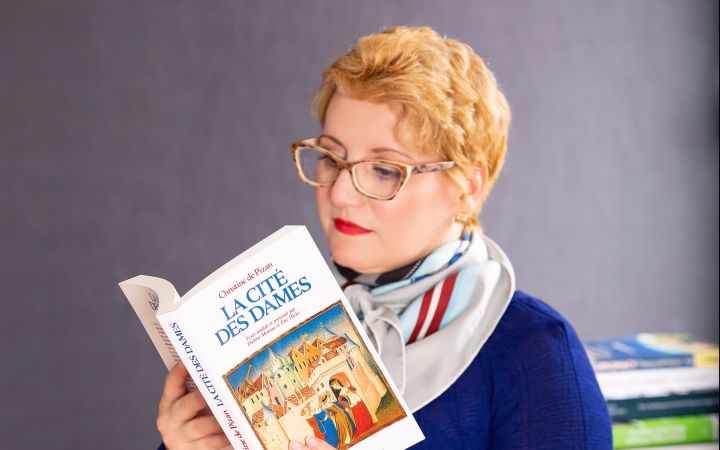Jelena Pia-Comella, Senior consultant and adjunct lecturer at John Jay College of Criminal Justice
New York, United States
Jelena is an adjunct lecturer at John Jay College of Criminal Justice, New York, and a senior consultant on topics related to Women, Peace and Security (WPS). As part of her consultancy services, she acts as an expert for UNITAR’s Global Diplomacy Initiative (GDI). Her relationship with UNITAR started in 1996, when she participated in UNITAR training as a young diplomat from her home country, Andorra. Her journey through the intricate corridors of global governance and her transformative career pathway paint a vivid picture of resilience, dedication and continuous learning.
Jelena embarked on her diplomatic journey in 1996 when she became one of the first diplomats posted abroad by Andorra. As the first female diplomat at the permanent mission of Andorra to the UN, she found herself navigating the intricate landscape of the United Nations, a task that became more manageable through her engagement with UNITAR. Her initial exposure to UNITAR's training sessions along with her wider experience of the UN shaped her understanding of the General Assembly and its committees. Over the years, she remained closely connected with UNITAR, acknowledging the organization's pivotal role in her diplomatic journey.
Although the first training she took with UNITAR was useful, the pivotal training for Jelena was in 2000 when Jelena represented Andorra at the Economic and Social Council (ECOSOC), a year before her country entered the Council for a three-year term, from 2001 to 2003. This time, the training prepared her for the particularities of ECOSOC membership. The week-long tailor-made sessions not only enhanced her skills but also facilitated invaluable networking opportunities, laying the foundation for collaborative efforts in the years to come. More specifically, the training assisted Jelena in drafting a well-informed and evidence-based report for her country’s participation in ECOSOC.
The networks Jelena developed during the training also helped her to distribute the report through interviews and primary sources collected with support from her newly formed network.
As her diplomatic career unfolded, Jelena assumed new responsibilities. From 2002 to 2007, as Deputy Permanent Representative of Andorra to the UN, she took charge of onboarding diplomats and interns, drawing on her positive experience with UNITAR's training sessions. Even after leaving her diplomatic post in 2007, she advised her former colleagues to continue benefiting from UNITAR's expertise, particularly the training for election officers, and resolution drafting and negotiations.
After changing her diplomatic career to the civil society sector and, eventually, international organizations and academia, Jelena was invited to contribute as a trainer for UNITAR in 2017 for on-demand training for diplomats of elected countries to the UN Security Council and later on for the UNITAR GDI. In her role as a trainer, she has shared her expertise on topics such as the Responsibility to Protect (R2P) and the WPS agenda.
Jelena's multifaceted journey also saw her contributing to academic institutions. Her association with UNITAR opened doors to her becoming an adjunct lecturer at John Jay College of Criminal Justice in 2020, showcasing the tangible impact of UNITAR's partnerships and networking efforts. Her previous role as a trainer also facilitated Jelena’s functions related to curriculum development.
As Jelena recounted her 28-year relationship with UNITAR, she highlighted the organization's instrumental role in shaping her diplomatic career and, in turn, her contributions as a trainer. Her testimony echoed the belief in the power of education and training, emphasizing how UNITAR's continuous support had been essential in building skills for the implementation of Sustainable Development Goals. She also highlighted UNITAR’s progress in highlighting the leadership role and gender aspects in multilateralism, through the engagement of more female experts and its thematic content as well as UNITAR’s efforts to incorporate multilingualism in its programming.


